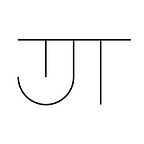The Dhaka Hustle
I spent last week in one of the most densely populated, busiest and polluted cities in the world. What I saw was heart-warming, harsh, and wholly inspiring.
Despite the opressive press of people, insane traffic, toxic smog and crazy monsoon storms, there’s one world that exemplifies Dhaka, Bangladesh: hustle.
Startup entrepreneurs often talk about hustle while sitting in their plush Airbnb-styled offices, drinking free craft beer from their fully stocked fridge, in between games of ping pong, but real Bangladeshis live hustle. From the moment they wake up to the moment they lay down to sleep among 10 of their fellow coworkers on a loft style bed above their sewing machines, or in the boat they use to ferry people across the river all day, they don’t stop hustling, moving, trying to make a buck (Taka), and miraculously … smiling. In case you can’t tell this was my first trip to a city like this, so this may seem old hat to all you folks who have constantly made travels to Asia, India and Africa. Major respect if you have (and still do). If you haven’t, find a reason to. A trip like this will reset your perspectives on work, life and the balance between both.
Of course not all Bangladeshis live like this. A great number do, but like in a lot of developing countries there is a huge emerging middle class.
In fact, Michael Foley, the Canadian-born CEO of Grameenphone, Bangladesh’s largest telecommunications provider, claims, “Bangladesh adds a middle class population the size of Norway each year.”
That’s growth a startup would kill for.
It’s this middle class that is also breeding hungry, smart, talented, young entrepreneurs. It was these new entrepreneurs whom myself and two other experts (Eva-Maria Zoll from Culture Design, and Daniel Ciganovic from SOLshare) were invited by the German Embassy in Dhaka to meet.
The German Embassy had pulled together two amazing partners in White Board (a Grameenphone sponsored incubator) and local heroes Better Stories to give 40 young Bangladeshis the chance to learn about creating a startup in a crash course workshop and hackathon-style business plan pitch competition called zeitgeistOOO. The young entrepreneurs were asked to solve one of ten real (read: truly impactful) problems, from last mile delivery to rural areas, to increasing tax collection, to tackling illiteracy.
They formed teams, had a day long workshop on design thinking, business model canvases and all the other lean startup methodology we may be familiar with but for them was completely new. After the intense workshop and a sleepless night or two of perfecting their idea the teams pitched their company ideas, received feedback and mentorship from us and were whittled down to a winning seven who would go on to be incubated by the partners. It’s a format I’ve been a part of several times so I knew what to expect from my role, but I was surprised what awaited me from the teams.
Previously (admittedly, ignorantly) the extent of my knowledge of Bangladesh before the trip was that the label “Made in Bangladesh” appeared on some of my favorite clothes. My expectations of quality from the entrepreneurs and partners was low. I was immensely impressed.
The workshop by Better Stories was superb, as good or better than similar workshops I’ve seen in Europe in the US. In fact the larger than life presenter, Shadman, would have been just as comfortable teaching at Standford as leading this group. Jam-packed with top quality information and organized flawlessly, I could tell Better Stories knew what they were doing and would hold their own against any digital consultancy in Berlin.
And then there were the entrepreneurs themselves – from a wide range of backgrounds – business, engineering, design, marketing, and even one aerospace-engineer-turned-android-developer. Some were students but most were young professionals with a couple years experience and now looking to start their own thing. The passion, drive, adaptability and raw intelligence of some of the people was spot on. My cynical self started to believe the “great entrepreneurs can come from anywhere” mantra again. Of course, like in any program there was a spectrum, but the best students will definitely go on to create great things.
There’s one more word that I want to mention, as it was also mentioned a lot during the program: Courage. It takes a lot of courage for these kids to do what they did.
Hell, it takes a lot of courage just to live in Dhaka. Trying to cross the street or ride a rickshaw will test your courage immediately.
But it’s not only that. These kids are breaking stereotypes, choosing a career path against their society’s idea of a stable job, attempting to solve a real problems with social impact and all without the social safety net we enjoy in Germany. That’s a courage we should all be inspired by.
My impressions of Bangladesh on this short trip were inspiring, heart-breaking, beautiful, disgusting, and literally awesome. It’s a wild place but with huge potential. You could (and maybe should) consider Bangladesh a playground – a place to test new ideas – or a place to do real business. Either way there is a huge amount of energy, hustle, and enthusiasm there and if you have the courage to take it on, there can be loads of opportunity. Not only that but you will find partners with smiles on their faces and open arms to greet you when you arrive.
A special thanks to the German Embassy in Bangladesh for the opportunity to be part of this program. Also big shout outs to the wonderful people at Better Stories, White Board, and Grameenphone.
